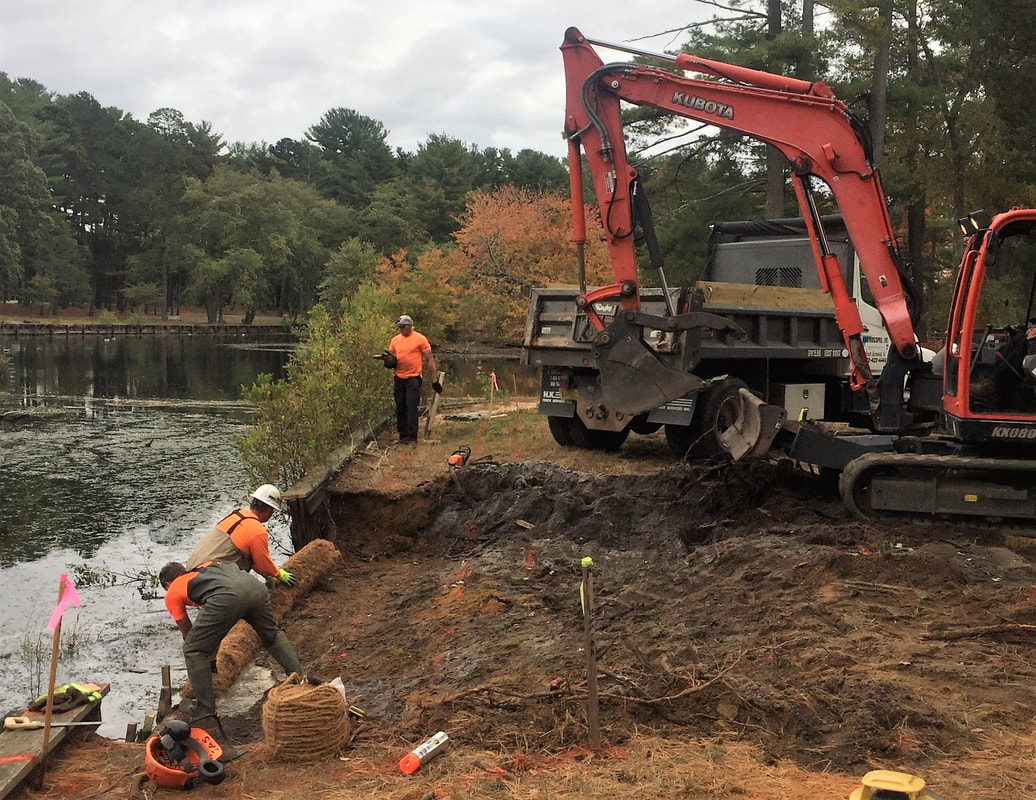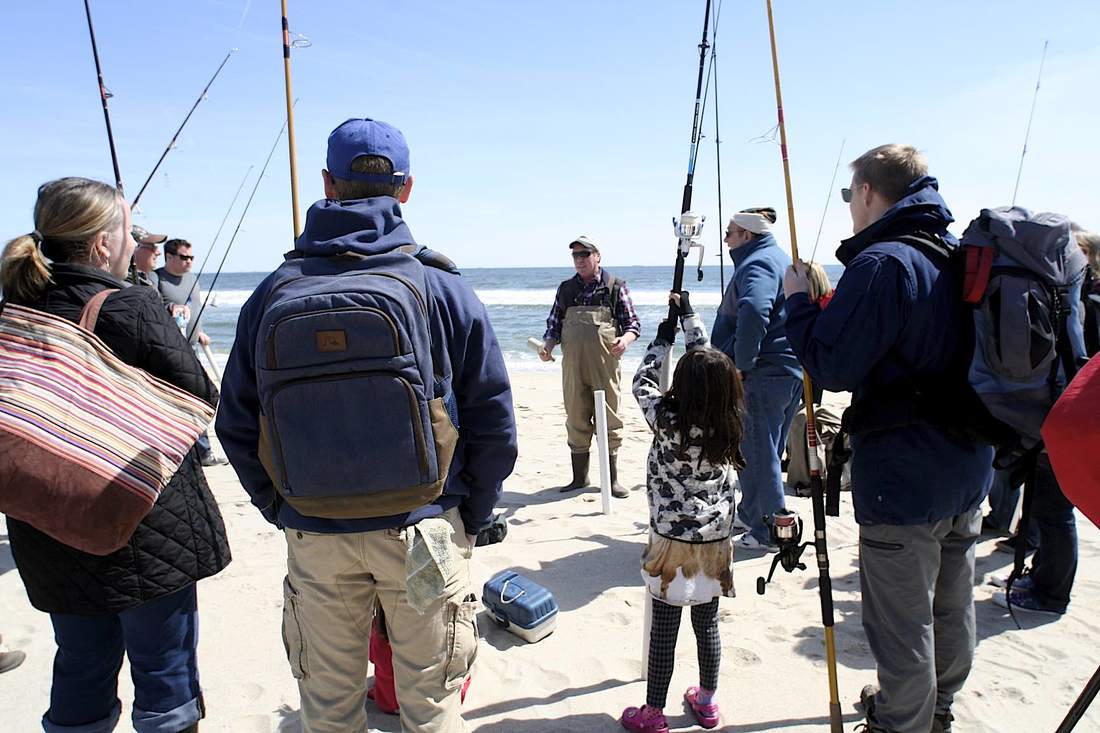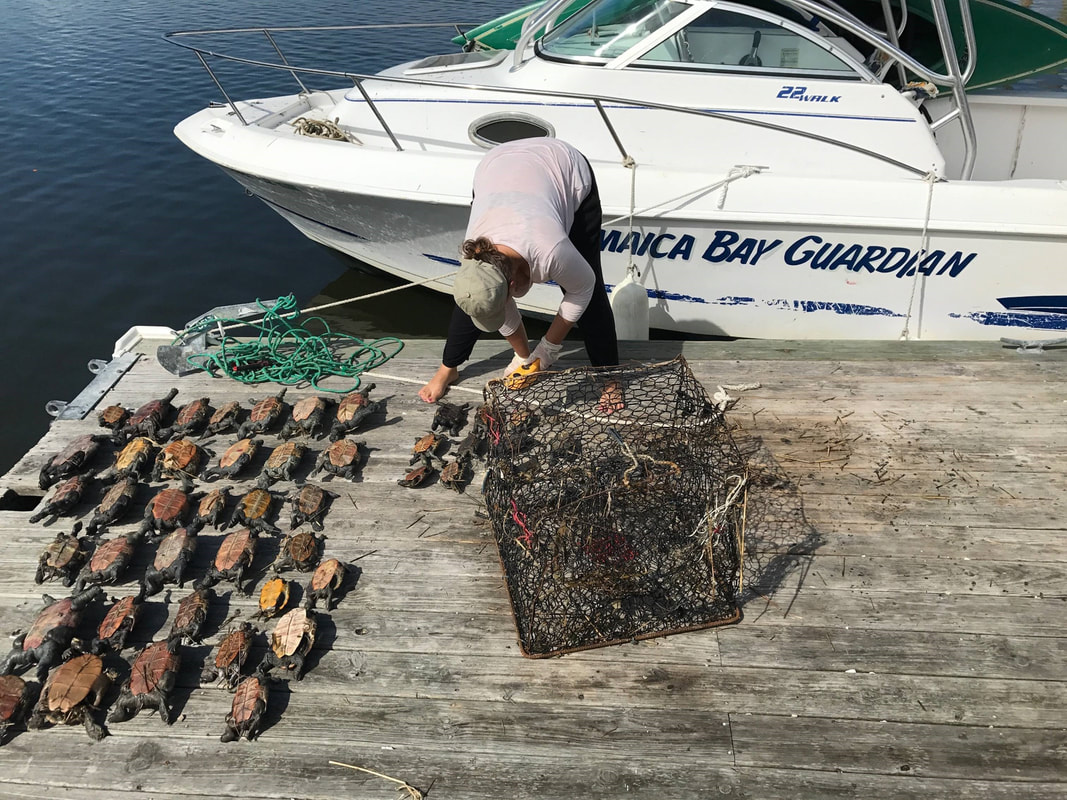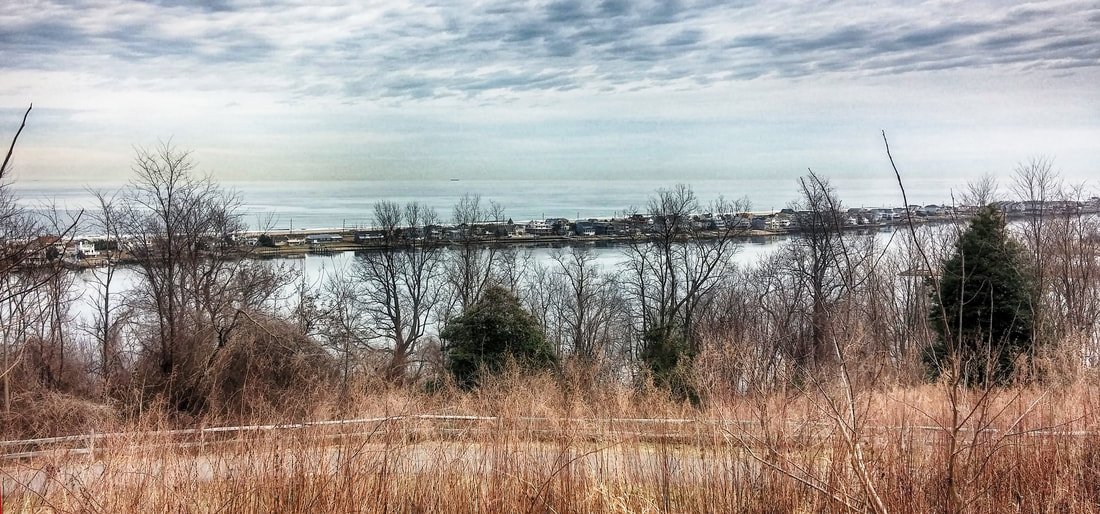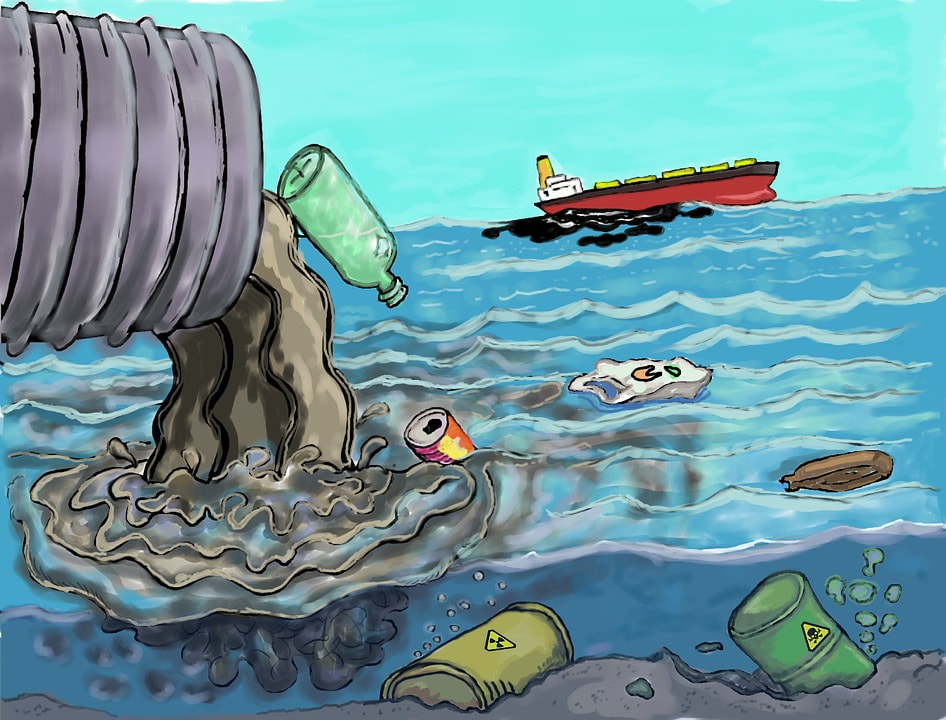|
Construction has begun at Ocean County Park in Lakewood, NJ on the final components of a stormwater improvement project the American Littoral Society began working on with partners in 2015. The project is funded by the New Jersey Department of Environmental Protection.
As part of the project, two living shoreline sections will replace 140 feet of bulkhead along Duck Pond. As seen in the picture, a portion of the work will involve installation of coir logs, which will stabilize the shoreline where the bulkhead has been removed. Coir logs are biodegradable and made from fibrous material, which help establish plant growth for longer term erosion control. Learn to read a beach, bait a hook and cast from the beach at the Littoral Society Surf Fishing Clinic with Fish Tagging Director Jeff Dement.
The clinic will be held Saturday, Nov. 18 from 8 a.m. to 3 p.m. Meet at Littoral Society Headquarters, 18 Hartshorne Drive, Highlands, NJ 07732. map All skill levels are welcomed. Rods, reels and tackle will be provided, but bring your own if you have it. Children under 18 are welcome with a supervising adult. Coffee and doughnuts will be provided but please bring your lunch. We'll begin instruction at Littoral Society HQ, then move to the beach so participants will have an opportunity to use what they've learned. Cost is $20 for Littoral Society members, $60 for nonmembers. Space is limited. Payment is required to secure a reservation. For more information and to reserve a spot, contact: 732-291-0055. In September, the New York State Department of Environmental Conservation announced the adoption of regulations to eliminate commercial harvest of diamondback terrapins and added the species to the list of native turtles with no open season.
The closure on harvest will go into effect beginning May 1, 2018. Also in September, Jamaica Bay Guardian and Littoral Society Northeast Chapter Director Don Riepe pulled up an illegal crab trap that illustrated in terrible terms one of the primary reasons diamonback terrapin populations are at historic lows. The trap contained 46 dead diamondbacks. The American Littoral Society has been working for years, both in New Jersey and New York, for a ban on harvesting diamondback terrapin. Those efforts paid off last year in New Jersey, when the state Department of Environmental Protection established an indefinite moratorium on taking the terrapins. Now New York has followed suit. Monmouth County has a goal of preserving 20,000 acres of undeveloped land. Voters will decide in November whether to fund the next step of the county plan.
The last question on the ballot for the Nov. 7 election will ask voters to support the Monmouth County Open Space Trust Fund with an additional 1.25 cents per $100 of equalized assessed property value. The money will go toward preserving open space in the county and maintaining the existing county park system. The increase will cost the average homeowner in the county little more than a cup of coffee per week. The American Littoral Society supports efforts to preserve and increase open space in New Jersey because of the many benefits open space brings, both to the environment and people. Over the last few years money from pollution settlements in New Jersey has vanished like water down a drain. Companies poured out millions of dollars toward cleaning up of environmental damage they caused in the state, but only a few drops have gone toward fixing the problems.
In each case, Governor Chris Christie channeled most of the money into gaping holes in the state budget. Now the citizens of New Jersey have an opportunity to put a plug in that practice and make sure money from polluters goes toward repairing the natural resources damages in affected communities by voting YES on Question 2 that will appear on the ballot for the Nov. 7 state election. Every community along the New Jersey coast and throughout the state has a unique individuality. Yet one thing is connecting and certain: each and every one is somehow tied to the sea. With over 130 miles of shore from Sandy Hook to Cape May, it doesn’t take much to find the ocean connection between communities.
Last week, three New Jersey coastal municipalities proudly expressed their connection to the ocean by becoming the first U.S. municipal governments to strongly support the Mid-Atlantic Regional Ocean Action Plan (OAP). The Mid-Atlantic OAP creates a more informed and coordinated approach to how we manage our ocean’s resources; ocean planning ensures we make smart decisions about future uses. |
Archives
July 2024
Categories
All
|

